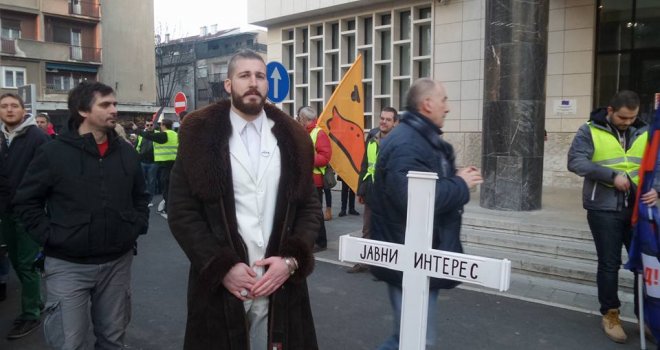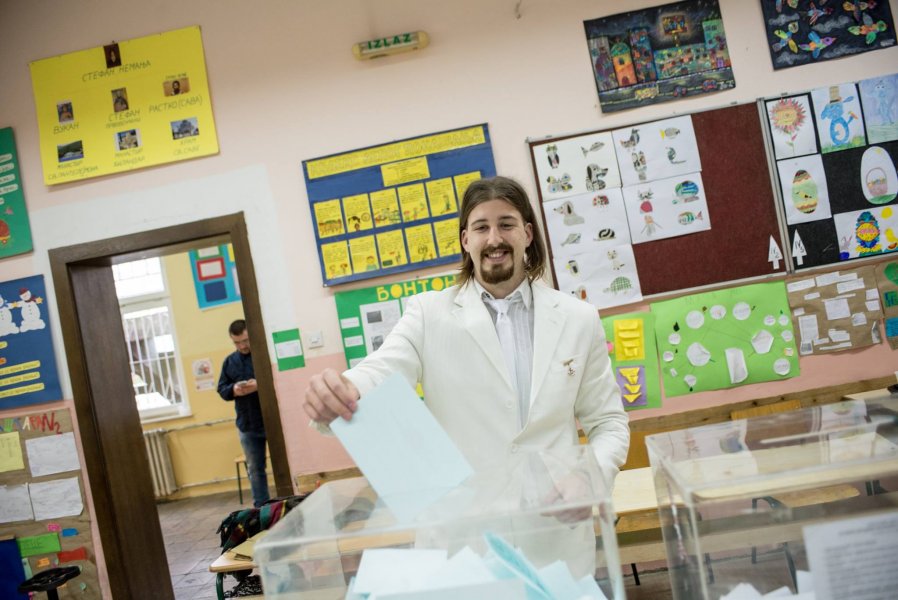You are using an out of date browser. It may not display this or other websites correctly.
You should upgrade or use an alternative browser.
You should upgrade or use an alternative browser.
European Politics
- Thread starter Forostar
- Start date
Dr. Eddies Wingman
Brighter than thousand_suns
This is not good.
The Flash
Dennis Wilcock did 9/11
Could backfire into providing Erdoğan with more strength for the upcoming referendum.
This is happening. I'm sensing a momentum developing in favor of the Yes vote.
I saw a newspaper from Switzerland publishing their main article in Turkish saying "Vote no in the referendum". Little do they know, Turks are very cynical towards Europeans and it's gonna backfire. Turks never consider European sentiments to be considerate of their well-being, so they tend to go the opposite direction. It could very well motivate people who wouldn't vote to go vote Yes, saying "Europeans don't like him, so he must be doing something right".
Last edited:
The Flash
Dennis Wilcock did 9/11
It's all part of the Erdohan scheme: "I'll show you how bad the EU is so let's move in the other direction. This way I get more yes votes. The yes vote will give more democracy in Turkey. Look how more democratic we are than the EU."
Yup, bang on the money. This is a fabricated diplomatic crisis.
The worst thing is, Erdoğan is throwing the immigrants under the bus for votes and the immigrants don't even realize it. The protests are bound to strengthen the far-right in the Netherlands. Wilders is already causing havoc.
Forostar
Ancient Mariner
And the immigrants are divided about this matter. There was a serious concern that a Minister speech would heaten the tensions.
Meanwhile this diplomatic row has become a major Dutch election issue as well. Most parties agree with how was dealt with matters last Saturday, but they disagree on what should happen from now on. E.g., one guy said the Ankara Agreement should be abolished. Which is not possible because that's a treaty between Turkey and the EU. And some do not wish to de escalate, and rather have more sanctions etc. Personally, I hope matters will calm down soon, but every time when a line is crossed, something should be done. We now see that every country in the EU does it their own way, and there is no open EU support, since there is a fear that Turkey will release millions of refugees in to the EU.
So: the EU is (sort of) under hostage.
Individual countries not per se.
Meanwhile this diplomatic row has become a major Dutch election issue as well. Most parties agree with how was dealt with matters last Saturday, but they disagree on what should happen from now on. E.g., one guy said the Ankara Agreement should be abolished. Which is not possible because that's a treaty between Turkey and the EU. And some do not wish to de escalate, and rather have more sanctions etc. Personally, I hope matters will calm down soon, but every time when a line is crossed, something should be done. We now see that every country in the EU does it their own way, and there is no open EU support, since there is a fear that Turkey will release millions of refugees in to the EU.
So: the EU is (sort of) under hostage.
Individual countries not per se.
Speaking of referendums: http://www.cbc.ca/news/world/scotland-to-seek-new-independence-referendum-1.4022223
Here Scotland goes again.
Here Scotland goes again.
Considering Remain did the best in Scotland, I wouldn't be surprised to see Leave win another referendum at this stage.
The Flash
Dennis Wilcock did 9/11
To all history buffs here, I have a question.
Is there an instance in history where people voted on switching to a dictatorship or not? If the answer is yes, is there an instance in history where this vote took place not after a war, civil war or revolution but in normal conditions?
Is there an instance in history where people voted on switching to a dictatorship or not? If the answer is yes, is there an instance in history where this vote took place not after a war, civil war or revolution but in normal conditions?
To all history buffs here, I have a question.
Is there an instance in history where people voted on switching to a dictatorship or not? If the answer is yes, is there an instance in history where this vote took place not after a war, civil war or revolution but in normal conditions?
Yes. Germany, 1933.
Titus Lartius was the first Roman dictator and he was elected as one because of a looming war.
United States, 2016.Is there an instance in history where people voted on switching to a dictatorship or not? If the answer is yes, is there an instance in history where this vote took place not after a war, civil war or revolution but in normal conditions?
The Flash
Dennis Wilcock did 9/11
Yes. Germany, 1933.
Should've excluded it, it's an obvious one. Outside of that?
Forostar
Ancient Mariner
Yes. Germany, 1933.
Scary how this text could be translated to Turkey, referendum expanding powers of Turkish president, AKP, Erdogan, Kurds, opposition, state of emergency / purges (reaction to failed coup) etc.:
https://en.wikipedia.org/wiki/Enabling_Act_of_1933
The Enabling Act (German: Ermächtigungsgesetz) was a 1933 Weimar Constitution amendment that gave the German Cabinet – in effect, Chancellor Adolf Hitler – the power to enact laws without the involvement of the Reichstag. It passed in both the Reichstag and Reichsrat on 24 March 1933, and was signed by President Paul von Hindenburg later that day. The act stated that it was to last four years unless renewed by the Reichstag, which occurred twice. The Enabling Act gave Hitler plenary powers. It followed on the heels of the Reichstag Fire Decree, which abolished most civil liberties and transferred state powers to the Reich government. The combined effect of the two laws was to transform Hitler's government into a legal dictatorship.
The formal name of the Enabling Act was Gesetz zur Behebung der Not von Volk und Reich ("Law to Remedy the Distress of People and Reich"). It was enacted by the Reichstag (meeting at the Kroll Opera House), where non-Nazi members were surrounded and threatened by members of SA and SS. The Communists had already been repressed and were not able to vote, and some Social Democrats were kept away as well. In the end, nearly all of those present voted for the act, except for the Social Democrats, who voted against it.[1]
Last edited:
We have presidential elections next month and this guy's candidacy just got approved:








According to Erdoǧan, the Dutch committed the massacre of Srebrenica. The Guardian translates his words as: "We know the Netherlands and the Dutch from the Srebrenica massacre. We know how rotten their character is from their massacre of 8,000 Bosnians there."
Anybody heard the original Turkish and can confirm this translation?
Anybody heard the original Turkish and can confirm this translation?
